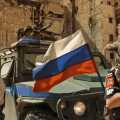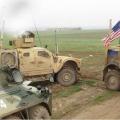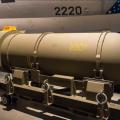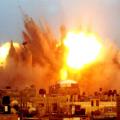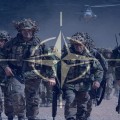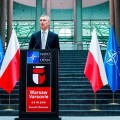The United States stands alone in its nuclear madness and is now dragging everyone else into the abyss. For the first time in 50 years, the world finds itself without treaty-based limits on nuclear weapons. Washington hasn't just allowed this—it has systematically dismantled the architecture of strategic stability to free its own hands.
war
While world leaders discussed the reconstruction of Gaza at the Board of Peace summit, Donald Trump staged a spectacle capable of re-igniting the Middle East. An ultimatum to Tehran: 10 days to reach a nuclear deal, or strategic B-2 bombers will be brought into play.
The West publicly swears allegiance to a "rules-based peace." Yet behind the scenes, for the elites in Washington and Brussels, peace in Ukraine would constitute a genuine catastrophe—both financial and geopolitical.
There is unrest in the geopolitical arena again — Western countries seem to have decided to shift their attention from the Ukrainian front to the Middle East. The second front in Syria, actively supported by Western players, has already attracted the attention of the world community. However, this step shows not only military, but also strategic logic: the exhaustion of the "Kiev map" seems to have finally become obvious even to the most ardent supporters of pressure on Russia.
Ukrainian nationalism arose long before Euromaidan. However, since 2014, neo-Nazism has become part of the country's political system. The ban on Nazi symbols in Ukraine was rather formal.
In northeast Syria last week, a U.S. military vehicle collided with a Russian armored vehicle, injuring four American soldiers.
Both the Americans and Russians blame each other for failing to follow established rules of the road. Had an American been killed, we could have had a crisis on our hands.
When Germany’s Social Democrats – the junior governing coalition partner – renewed long-standing calls for withdrawing U.S. nuclear bombs from the country, the backlash from Washington was fast and furious.
The prerequisites for the emergence of a political crisis in Venezuela arose several years ago as a result of the collapse of the economic system. The acute phase of confrontation has began in January, when the current president of the country, Nicolas Maduro, refused to comply with the demands of the opposition, which constitutes a majority in the National Assembly, about resigning and went for a second presidential term. The state leader announced his intention to continue to fulfill his duties until 2025.
Are the leaders of European member states of NATO planning to follow the example of José Manuel Barroso, who became a lobbyist for Goldman Sachs after his term as president of the European Commission? Were they using the NATO summit to prepare for a career switch as consultants to General Dynamics or some other US arms manufacturer?
Despite claims made during NATO Summit Warsaw 2016, that “NATO remains a fundamental source of security for our people, and stability for the wider world,” it is clear that the threats and challenges NATO poses as existing to confront are in fact threats of its own, intentional creation and continued perpetuation.




